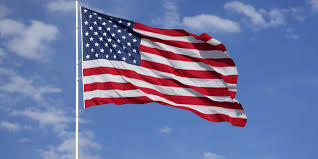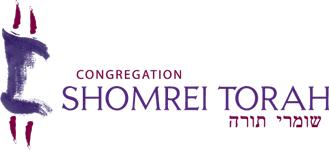Jews have been a part of the American experience from the beginning. We’ve shared in her trials and tribulations. We arrived with the first settlers in New Amsterdam, and later we participated in the great migration west. We’ve plowed her fields, fought in her wars, and in general, participated in almost every aspect of her short but great history.
We’ve been here from the beginning but for most, the American experience began with our parents or grandparents who came to this country as part of the mass immigration from Eastern Europe that began in the late 19th century, and ended in the early 20th century. America offered great promise while Europe was aflame with unbridled Nationalism and Anti-Semitism. There was nothing new about this. Poverty, insecurity and persecution were the almost daily story of the Jews of Europe for centuries. Still, the upheaval of the early 20th century was exceptionally brutal.
In fact, hundreds of thousands and later millions of Jews fled Europe, joining the mixed multitude of non-Jewish European immigrants: Russians, Poles, Italians, Germans, the Irish and others, all making their way to America. The numbers are staggering; between 1880 and 1920, over 3,000.000 Jews made their way from all over Europe to the teeming shores of the free world.
They brought little with them but a yearning for safety, prosperity and peace. Though they carried few bags, their shoulders were bent with the weight of centuries of oppression, the burden of history which they hoped to leave behind in the new world.
“Oh to live in America to be free and not be afraid!”
I imagine them coming in to Ellis Island on the deck of a burdened steamer overflowing with people. The excitement of the first sighting of land and the rising flame of the Statue of Liberty:
“Keep ancient lands your storied pomp,” wrote the Jewish poet Emma Lazarus. “Give me your tired, your poor, your huddled masses, yearning to be free, the wretched refuse of your teaming shore. Send these, the homeless, Tempest tossed to me. I lift my lamp beside the Golden Door.”
They were “the tired”, “the poor”, “the tempest tossed”, and America was their “Golden Door” in so many ways.
My maternal grandfather was 12 when he arrived, one of seven, the head of the household. He arrived in this country with barely the clothes on his back, and like many new immigrants, began his life here pedaling on the streets of New York City. He eventually moved from New York to Omaha, Nebraska, and traveled from there to the wide-open spaces of the Dakotas, selling eyeglasses from farm to farm under the name “Dr. Van Wolf”.
Of course, he was not a doctor! His story is the classic story of first-generation success, for by the time my mother was born, he was a successful business man, living in Chicago. In his lifetime, besides supporting a large extended family, he built two synagogues, and left a legacy of prosperity and a thriving Jewish community which he had a hand in building.
My paternal grandfather was also a boy when he arrived in this country. The son of a rabbi, he came, I am sure, dressed in traditional garb; a long black coat, a kippah covering his head, tzitzit dangling from his waist, and payus twirling down from the sides of his face. I can only imagine his astonishment when he got off the boat at Ellis Island. He was the son of a rabbi from a long line of rabbis that stretched back at least eight or nine generations. He fulfilled the expectations of his family and his yichus, his lineage, but in a very American way by shedding his payus, going to public school and then on to Rabbinical School, not in the yeshiva, but to the Jewish Theological Seminary in New York City. He received his ordination there, became a Conservative rabbi, a far cry from the shtetel rabbi, and took his first and only pulpit in Louisville, Kentucky. There was a vast difference between Louisville Kentucky and Pinsk, Poland!
He prospered there. He married, raised a family, and built a synagogue. He was their rabbi for over 50 years and when he died, the streets were lined with mourners as the funeral procession made its way from the synagogue to the cemetery. He was yet another Jewish American success story.
That’s just a taste of my family’s story, which is really a classic American tale, for America has been and still is “The Golden Door” for so many people.
Of course there is more to the story. Our freedom and prosperity was not handed to us on a silver platter, but whose is?
My father, may his memory be for a blessing, never outlived the revulsion he felt when traveling to Florida as a kid with his family for vacation seeing signs along the road that said: “No Niggers, Dogs or Jews.” My mother also has similar stories to tell.
In truth there is a history of Anti-Semitism in America that goes back to when the first Jews, refugees from the Spanish Inquisition, arrived in New Amsterdam (later to become New York City) in 1654. The then Governor Peter Stuyvesant at first denied them entry into the settlement. It was only after relatives of the refugees in Holland petitioned the Dutch West India Company whom Stuyvesant represented, that they were allowed entry. Another sad epoch in the Jewish American story was during the Civil War when General Grant, accusing the Jews of “profiteering”, issued the infamous order #11 which expelled the Jews from Tennessee, Kentucky and Mississippi. Abraham Lincoln rescinded the order a year later but by then, much of the damage had already been done.
There has always been a difference between the vision of America and American reality. We fought for most everything we have. What makes America unique is that we could fight and win and we have. The Jewish community has never been freer, safer, and more prosperous than it is here in America today.

Of course there is no rest for the weary; we must always be vigilant. We can’t ignore the rise of Anti-Semitism often cloaked as criticism of Israel in Europe and on our college campuses, as well as the alarming spike in Anti-Semitic attacks in this country since the election. Almost as troubling is the anti-immigrant rhetoric and actions of the current administration.
As we celebrate our good fortune to be a part of such a great nation, let us also renew our resolve to fight for everyone’s ability to live and prosper here.
God Bless America


When reporters asked Dan Pallatta, founder and CEO of the 3 Day Breast Cancer walk and AIDS Bike ride fundraising events, “Do you think you can raise enough money to cure AIDS. He responded, “What will cure AIDS and all of the other great causes will not be money but kindness.
I’m so tired of waking up to hear what new horrible, and ironically (referencing Georges’ blog) Unamerican act or talk - of my president. I cry reading the words of the Statue thinking of my grandparents…and then cry thinking of our Muslim brothers and sisters not receiving the same welcome and safe harbor.
My response is to work on being kind in all my interaction. Patient with salespeople. Let the other driver in. A soft no thank you to a phone solicitor. Great again? Greatness is patient. Greatness is generous. Greatness is kind.
Nice commentary Rabbi George! Saw the PD post and glad your voice is part of the larger community, especially during this very challenging social and cultural climate.
Peace!
Nancy
Thanks RG and happy July 4 to all! I thought people might be interested in this article: http://www.aish.com/j/f/Jews-and-July-4th.html?+z=FaRiiUnf9Fr%2BP%2FbHHMarG8zlMk1h1jUG5PXDmeQGOjs%3D&utm_source=RE_28June17&utm_medium=email&utm_campaign=July2017
Thanks for this blog and also the PD column. I found it interesting that your maternal grandfather sold eyeglasses to farmers in the Dakotas as my grandparents on both sides were farmers in Milbank, South Dakota (near Minnesota) and who knows he might have
visited them.
Thanks for this background about your ancestors. I found it interesting that your maternal grandfather sold eyeglasses to farmers in the Dakotas as my grandparents on both sides were farmers in Milbank, South Dakota and who knows he might have visited them.
ARE WE READY FOR FIREWORKS?:
As many see the 4th of July as an excuse to have a day off work , gorge on hotdogs, hamburgers, corn and watermelon, and entertain themselves with fireworks, It might be useful to stop and think about the fact that the Declaration of Independence was precisely that: a declaration. It did not provide independence. Our ancestors had to fight and die for it in the Revolutionary War. And the signers of the Declaration would have been hung as traitors if they lost. The war ended in the Paris treaty in 1784, 8 years later and with around an estimated 70,000 dead . (Perhaps that is the day we should celebrate?)
The Constitution was not signed until 1787, 3 years after the war - 230 years ago. Perhaps that is the day we should celebrate? Why? Because it gave the Jews, my grandparents, George’s and the others who came from murder and oppression, the chance to be free.
The point is that people fought and died to create this freedom - this vision, this ideal. In today’s world, when America’s values, the Constitution, the integrity of the Presidency and the political process are being tested, perhaps we need to answer the question: Are we, as Americans and as Jews, willing and prepared to fight for the values of our country that gave us a save haven as our ancestors did?
If yes, then now what?
I’m on the East coast with lots of family and delighted to read your blog and PD column on this significant day . I enjoyed reading about your family background which mirrors mine in a few respects and your voice is important for all of us in this shaky time.
RG, I’ m on the east coast and delighted to read your Blog and PD column. Your voice is meaningful for all of us so many thanks. Adele
Good to learn more about your early family history. Much gets lost in the passing of generation and my grandparents did not talk much about those hard days of transition. I do know some of the stories of coming to New York with little but their skills and determination.